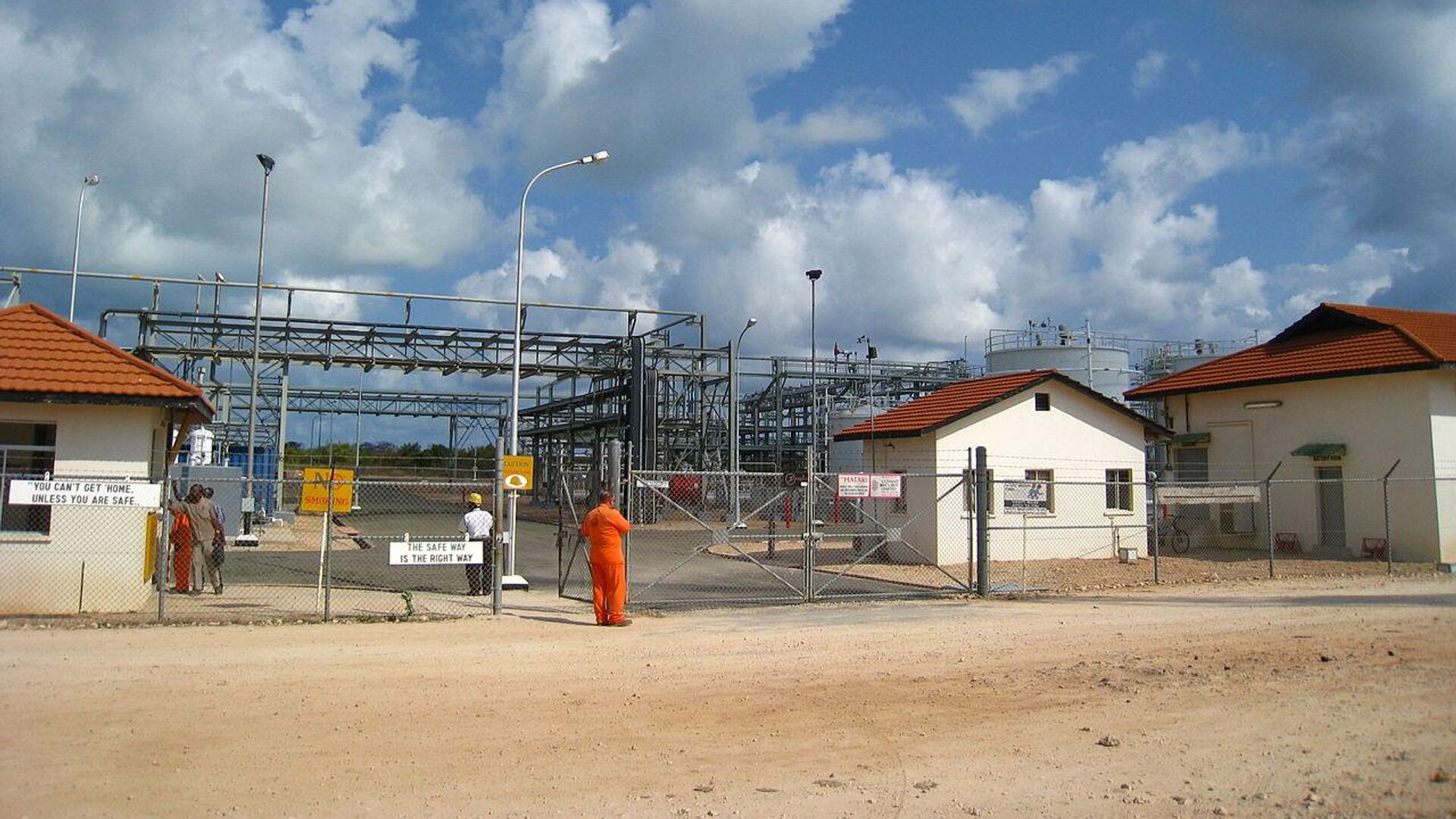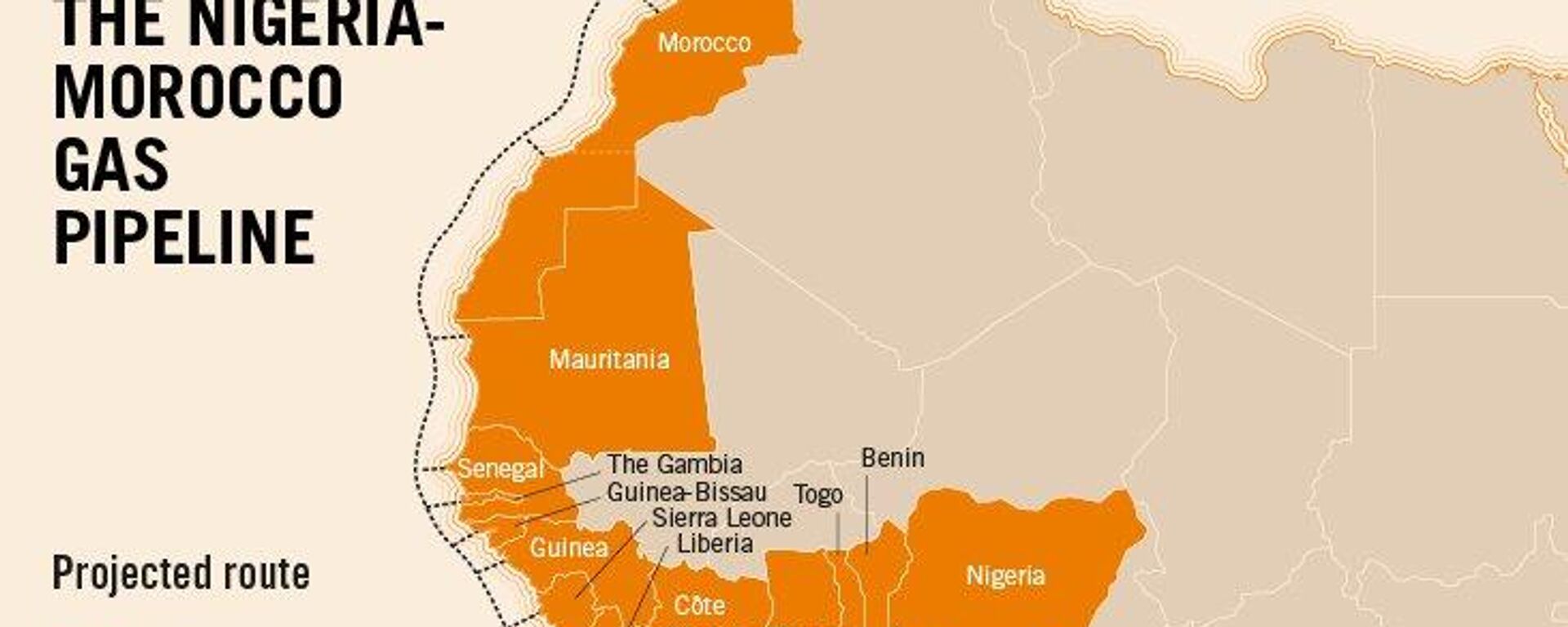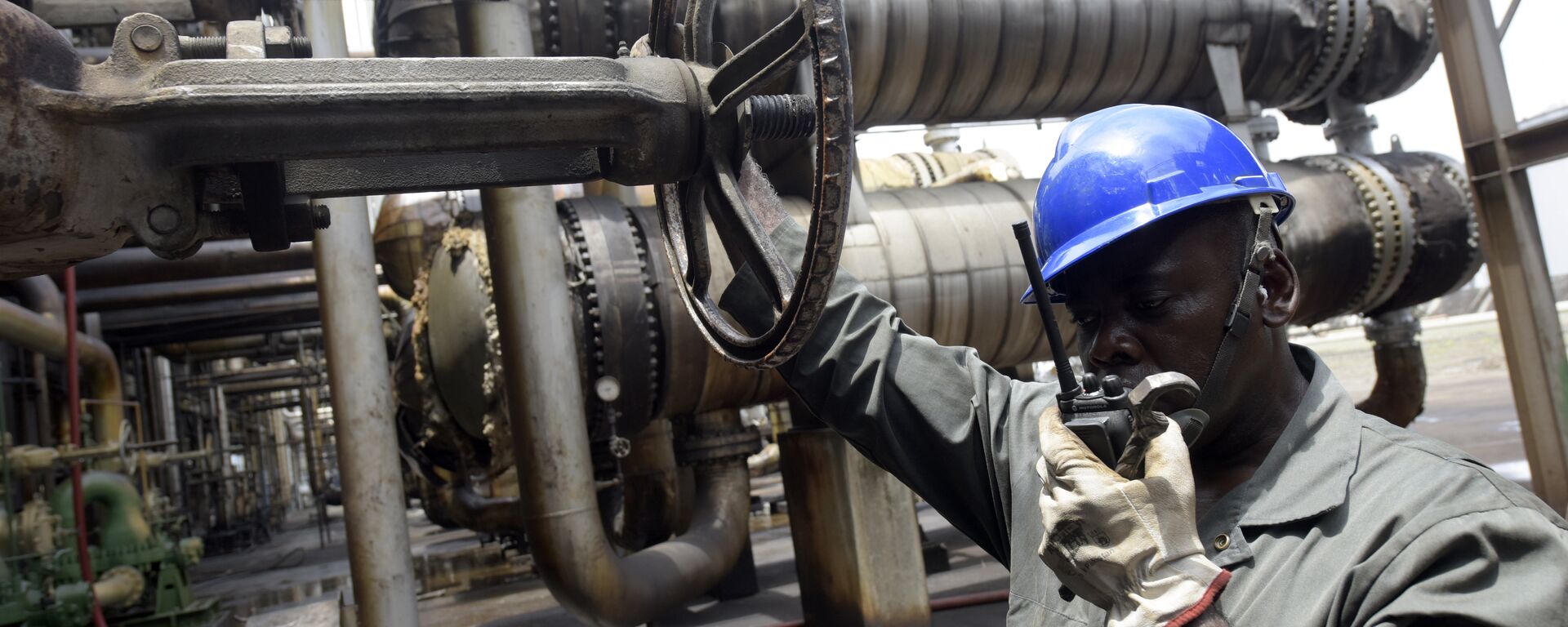https://sputnikglobe.com/20220805/tanzania-may-benefit-from-eus-gas-rush-in-the-wake-of-europes-self-harming-russia-sanctions-1098283057.html
Tanzania May Benefit From EU's Gas Rush in the Wake of Europe's Self-Harming Russia Sanctions
Tanzania May Benefit From EU's Gas Rush in the Wake of Europe's Self-Harming Russia Sanctions
Sputnik International
Tanzania hosted the fourth Energy Congress in Dar es Salaam on August 3-4, 2022. In particular, the gathering discussed how to attract investment and create... 05.08.2022, Sputnik International
2022-08-05T18:39+0000
2022-08-05T18:39+0000
2022-11-23T11:36+0000
europe
tanzania
natural gas
lng
russia
sanctions
ukraine
investments
africa
east africa
https://cdn1.img.sputnikglobe.com/img/07e6/08/05/1098275927_0:218:1280:938_1920x0_80_0_0_8c7ae684bd7187196d2401d292a30c6d.jpg
Tanzania holds an estimated 17 trillion cubic meters of natural gas reserves that offer lucrative opportunities for investors. Furthermore, the East African state also benefits from convenient geography, with the coastline offering a springboard to markets of both Asian and European markets.However, Western anti-Russia sanctions over the latter's special military operation in Ukraine could become a potential catalyst for the development of Tanzania's energy industry. Earlier this year, the EU pledged to end its dependence on Russian fossil fuels before 2030, following in Washington and London's footsteps. In April, Brussels laid out targets to slash its demand for Russian natural gas by two thirds by the end of 2022.In May 2022, Bloomberg revealed that European political and business leaders were trying to curry favor with African gas producers to replace Russia's hydrocarbons as the energy embargo has backfired, sending energy prices higher and accelerating already soaring inflation.For its part, the Tanzanian government in March signaled willingness to fast track the development of natural gas resources in order to benefit from Europe’s energy rush.On June 11, Dodoma inked initial agreements on a $40 billion liquefied natural gas (LNG) project with the UK’s Shell and Norway’s Equinor to build the LNG export terminal on the coastal shore of the Indian Ocean. Other companies involved include ExxonMobil, Pavilion Energy and Medco Energi, according to Bloomberg. The plant will be built by the East African nation’s southern coastal town of Lindi and will be linked to deepwater gas deposits off Tanzania’s southern coast. The hub may become operational by 2029-2030.It is expected that Tanzania would join with neighboring Mozambique to develop the new LNG project. However, Mozambique is trying to thwart an insurgency which earlier forced TotalEnergies SE to suspend operations, according to Bloomberg.The idea of a Tanzania-Mozambique LNG hub is not new: the major European energy giant was in talks with the state-run Tanzania Petroleum Development Corporation's (TPDC) over the construction of an LNG plant back in 2016. However, the process turned out to be bumpy at the time. Negotiations over the Host-Government Agreement (HGA) – a treaty between a foreign investor and a local government – were halted in 2017 and resumed in 2018, only to be suspended again, according to Anadolu Agency.In addition to becoming a potential major East African LNG hub, Tanzania may also become a transit state for oil going from Uganda’s Lake Albert through the East African Crude Oil Pipeline (EACOP), also known as the Uganda-Tanzania Crude Oil Pipeline (UTCOP). It is planned that the crude would be exported through the Tanzanian port town of Tanga. In December 2021, the Ugandan parliament passed the EACOP Special Provisions Bill into law, with the parliament of Tanzania inking similar legislation in August 2021.Tanzania is wise to capitalize on Europe's energy rush. When it comes to Europe, the Old Continent is unlikely to satiate its energy appetite by African hydrocarbons soon, according to international energy experts.When it comes to Africa, the EU will need at least 10-15 years to replace Russia's gas with African hydrocarbons, given that the effort requires huge investments in exploration and infrastructure.African nations may benefit from Europe's investments in the development of the continent's energy industry if the EU lets African consumers get their fair share from the continent's hydrocarbon wealth.
https://sputnikglobe.com/20220517/russias-probable-investment-in-nigerian-gas-will-be-boon-for-africa-but-what-will-it-mean-for-eu-1095562447.html
https://sputnikglobe.com/20220711/prof-russian-gas-is-irreplaceable-but-if-eu-wants-more-african-fuel-it-should-invest-first-1097201519.html
tanzania
russia
ukraine
africa
east africa
Sputnik International
feedback@sputniknews.com
+74956456601
MIA „Rossiya Segodnya“
2022
News
en_EN
Sputnik International
feedback@sputniknews.com
+74956456601
MIA „Rossiya Segodnya“
Sputnik International
feedback@sputniknews.com
+74956456601
MIA „Rossiya Segodnya“
europe, tanzania, natural gas, lng, russia, sanctions, ukraine, investments, east africa, oil
europe, tanzania, natural gas, lng, russia, sanctions, ukraine, investments, east africa, oil
Tanzania May Benefit From EU's Gas Rush in the Wake of Europe's Self-Harming Russia Sanctions
18:39 GMT 05.08.2022 (Updated: 11:36 GMT 23.11.2022) Tanzania hosted the fourth Energy Congress in Dar es Salaam on August 3-4, 2022. In particular, the gathering discussed how to attract investment and create opportunities for the development of the energy industry, with Tanzania being seen as a potential supplier of natural gas to Europe.
Tanzania holds an estimated 17 trillion cubic meters of natural gas reserves that offer lucrative opportunities for investors. Furthermore, the East African state also benefits from convenient geography, with the coastline offering a springboard to markets of both Asian and European markets.
However, Western anti-Russia sanctions over the latter's special military operation in Ukraine could become a potential catalyst for the development of Tanzania's energy industry. Earlier this year, the EU pledged to end its dependence on Russian fossil fuels before 2030, following in Washington and London's footsteps. In April, Brussels laid out targets to slash its demand for Russian natural gas by two thirds by the end of 2022.
In May 2022, Bloomberg revealed that
European political and business leaders were trying to curry favor with African gas producers to replace Russia's hydrocarbons as the energy embargo has backfired, sending energy prices higher and accelerating already soaring inflation.
For its part, the Tanzanian government in March signaled willingness to fast track the development of natural gas resources in order to benefit from Europe’s energy rush.
On June 11, Dodoma inked initial agreements on a $40 billion liquefied natural gas (LNG) project with the UK’s Shell and Norway’s Equinor to build the LNG export terminal on the coastal shore of the Indian Ocean. Other companies involved include ExxonMobil, Pavilion Energy and Medco Energi,
according to Bloomberg. The plant will be built by the East African nation’s southern coastal town of Lindi and will be linked to deepwater gas deposits off Tanzania’s southern coast. The hub may become operational by 2029-2030.
"We expect the final investment decision on the LNG project to be reached in 2025," Tanzanian President Samia Suluhu Hassan stated in a speech at the signing event.
It is expected that Tanzania would join with neighboring Mozambique to develop the new LNG project. However, Mozambique is trying to thwart an insurgency which earlier forced TotalEnergies SE to suspend operations,
according to Bloomberg.
The idea of a Tanzania-Mozambique LNG hub is not new: the major European energy giant was
in talks with the state-run Tanzania Petroleum Development Corporation's (TPDC) over the construction of an LNG plant back in 2016. However, the process turned out to be bumpy at the time. Negotiations over the Host-Government Agreement (HGA) – a treaty between a foreign investor and a local government – were halted in 2017 and resumed in 2018, only to be suspended again,
according to Anadolu Agency.
In addition to becoming a potential major East African LNG hub, Tanzania may also become a transit state for oil going from Uganda’s Lake Albert through the East African Crude Oil Pipeline (EACOP), also known as the Uganda-Tanzania Crude Oil Pipeline (UTCOP). It is planned that the crude would be exported through the Tanzanian port town of Tanga. In December 2021, the Ugandan parliament passed the EACOP Special Provisions Bill into law, with the parliament of Tanzania inking similar legislation in August 2021.
Tanzania is wise to capitalize on Europe's energy rush. When it comes to Europe, the Old Continent is
unlikely to satiate its energy appetite by African hydrocarbons soon, according to international energy experts.
"It is highly unlikely that African LNG exporters along with the United States, Qatar and Australia will be capable of replacing Russian gas supplies to the EU now or in the foreseeable future," Dr. Mamdouh G. Salameh, a visiting professor of energy economics at the ESCP Business School in London,
told Sputnik in July. "The reason is that the bulk of US, Qatari and Australian LNG exports are bought years in advance by customers in the Asia-Pacific region; and partly because the EU has limited LNG import capacity and storage."
When it comes to Africa, the EU will need at least
10-15 years to replace Russia's gas with African hydrocarbons, given that the effort requires huge investments in exploration and infrastructure.
"The two relatively significant African Liquefied Natural Gas (LNG) exporters are Algeria - currently exporting 29.3 million tonnes (mt) - and Nigeria - with an export capacity of 22.2 mt," Salameh explained back in May. "The rest of Africa’s producers have limited production and export capacities with neither LNG plants nor gas pipelines."
African nations may benefit from Europe's investments in the development of the continent's energy industry if the EU lets African consumers
get their fair share from the continent's hydrocarbon wealth.




